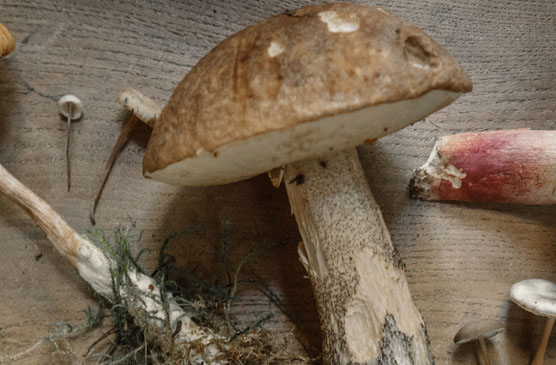Beneficial Botanical Nutrients That Encourage Healthy Aging
Posted by Natura Health Products on Jul 25th 2022
The effects of aging are a natural part of our spiritual journey. It's an essential step in our voyage and one we all encounter along the way. But while we are living longer, we are not necessarily living better. Many Americans start to feel some of the negative effects of aging by the time they are 40 or 50 years old. When we address healthy aging, we seek to add years to our life and make the most out of this additional time. To this end, there is significant research to support botanical and nutritional interventions for vitality and longevity with healthy aging supplements.
There are two main groups in aging theories. The first group states that aging is a natural and unavoidable decline that starts at a certain time, while the second group of aging theories believes aging is a result of damage that is accumulated over time. In the end, aging is a complex interaction of genetics, chemistry, physiology, and behavior.
The good news is that many of the causes of aging can be modified through lifestyle changes. From a foundational perspective, we can eat foods loaded with antioxidants to minimize damage caused by free radicals and exercise to limit bone and muscle loss. Keeping cholesterol low can slow the hardening of arteries and protect the heart, and practicing mental fitness can keep the brain sharp.
However, these modifications alone may not offset the age-related health challenges innate to modern life. Proactively adding a protocol of botanical and nutrient compounds for healthy aging can optimize patients’ ability to maintain vibrance and quality of life as their bodies mature. When evaluating supplement protocols for your patients, look for three of the most studied, evidence-based compounds for longevity and healthy aging.
Curcumin
Curcumin is a compound found in turmeric and loaded with antioxidant properties. This compound leads to noticeable reductions in cell aging and seems to slow down cognitive decline in adults. As a bonus, the inherent properties of curcumin appear to provide an inflammatory response function that promotes healthier skin and gives you a lasting radiant glow. (1)
Coenzyme Q10 (CoQ10)
Coenzyme Q10 (CoQ10), or ubiquinone, is found in small amounts in meats and seafood. CoQ10 plays an important role in the production of energy within each cell of the human body. It resides in the mitochondrial membrane and is a naturally occurring cofactor in the electron transport chain, the biochemical pathway in cellular respiration from which ATP and most of the body's energy are derived. CoQ10 is considered essential for the health of the body's cells, tissues, and organs—in particular, the heart. Various studies have confirmed that as we age, our body's supply of CoQ10 slowly diminishes, making it a vital nutrient for anyone wishing to inhibit premature aging. (2)
Trans-Resveratrol From Japanese Knotweed
Trans-resveratrol from Polygonum cuspidatum or Japanese Knotweed is a stilbenoid that plays a crucial role in promoting cellular health and genetic integrity by providing antioxidant activity and quenching free radicals. Its broad-spectrum therapeutic benefits include supporting cardiovascular health by maintaining a healthy blood lipid profile, modulating adaptive immunity and healthy inflammation, and encouraging neurological health for healthy aging and longevity. (3)
Because botanical compounds such as curcumin, CoQ10, and trans-resveratrol from Japanese Knotweed exhibit synergistic effects, they are more efficacious when combined and formulated with complementary concentrated botanical extracts such as rosemary, ginger, holy basil, and grape seed. Through a combination of lifestyle changes, diet, exercise, and key botanical and natural supplementation for healthy aging, we can support health and vitality to improve the aging process and optimize our quality of life. When looking to combine botanical supplements, many of the positive effects that optimize our bodies and work to facilitate the natural effects of aging build upon one another for additional impact.
1. Bisset NG, ed. Herbal drugs and phyto-pharmaceuticals: a handbook for practice on a scientific basis. Boca Raton, FL CRC. 1994.
2. Higdon J, Drake VJ. Coenzyme Q 10. Linus Pauling Institute. Oregon State University. 2012. http://lpi.oregonstate.edu/mic/dietary-factors/ coenzyme-Q10
3. Zhang H, Li C, et al. A Review of the Pharmacological Effects of the Dried Root of Polygonum cuspidatum (Hu Zhang) and Its Constituents. Evid Based Complement Alternat Med. 2013:2013:208349. doi: 10.1155/2013/208349. Epub 2013 Sep 30.

